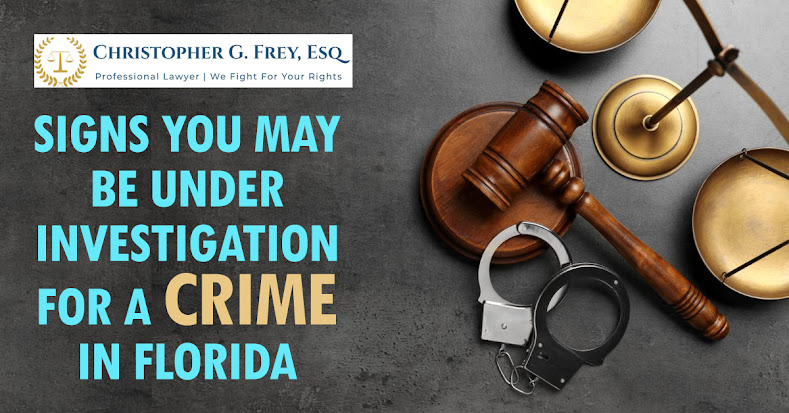Tampa Motorcycle Accidents: Safety Tips and Legal Rights
Introduction
Riding a motorcycle through the scenic streets of Tampa Bay can be exhilarating. However, it's crucial to prioritize safety to avoid accidents. In this comprehensive guide, we'll delve into safety tips and legal rights for motorcyclists in Tampa. Plus, we'll introduce you to the expertise of the Tampa Personal Injury Attorney at freylawpa.com.
Tampa Motorcycle Accidents: Safety First
1. Gear Up for Safety
Riding a motorcycle without proper gear is like going into battle without armor. Ensure you wear a DOT-approved helmet, protective clothing, gloves, and sturdy boots. Safety gear significantly reduces the severity of injuries in accidents.
2. Maintain Your Bike
Regular maintenance is key to preventing accidents caused by mechanical failures. Check your tires, brakes, lights, and signals before each ride. A well-maintained motorcycle is a safer one.
3. Defensive Riding
In Tampa's busy traffic, defensive riding is a must. Anticipate the actions of other drivers and stay alert. Avoid blind spots, and always use your signals when changing lanes.
4. Weather Awareness
Tampa's weather can be unpredictable. Be cautious when riding in rain or fog, as road conditions can deteriorate quickly. Reduce your speed and increase your following distance.
5. Rider Training
Invest in rider training courses to sharpen your skills. The knowledge gained in these courses can help you react effectively in challenging situations.
Understanding Your Legal Rights
6. Seek Medical Attention
After an accident, prioritize your health. Seek immediate medical attention, even if your injuries seem minor. Your well-being is paramount, and a medical report will be crucial for your legal case.
7. Document the Scene
If possible, document the accident scene. Take photos of the vehicles involved, the road conditions, and any relevant signage. This documentation can be valuable evidence.
8. Contact Law Enforcement
Report the accident to the police. A police report provides an official record of the incident, which can be essential for insurance claims and legal proceedings.
9. Gather Witness Information
If there are witnesses to the accident, obtain their contact information. Their statements may be vital in establishing fault or liability.
10. Consult an Attorney
Navigating the legal aspects of a motorcycle accident can be complex. Consult a seasoned Tampa Personal Injury Attorney from Freylawpa.com to understand your rights and options.
11. Insurance Claims
Notify your insurance company promptly. Your attorney can assist in communicating with them and ensuring you receive fair compensation for damages.
12. Know the Statute of Limitations
Be aware of the statute of limitations for personal injury cases in Florida. Failing to file within the specified time frame may result in losing your right to compensation.
13. Preserve Evidence
Keep all documents related to the accident, including medical records, repair invoices, and correspondence with insurance companies. This evidence can strengthen your case.
Why Choose Us
14. Experience Matters
Our team of Tampa Personal Injury Attorneys at Freylawpa.com has a wealth of experience in handling motorcycle accident cases. We understand the intricacies of Florida's personal injury laws.
15. Expertise in Negotiation
Our attorneys are skilled negotiators, working tirelessly to secure the compensation you deserve. We aim to resolve cases efficiently while maximizing your recovery.
16. Trial-Ready Representation
If a fair settlement cannot be reached, we are prepared to take your case to trial. Our aggressive representation ensures that your rights are protected in the courtroom.
17. Client-Centric Approach
At Freylawpa.com, our clients come first. We provide personalized attention and tailor our strategies to your unique needs and circumstances.
18. Proven Track Record
Our track record of successful motorcycle accident cases speaks for itself. We have helped numerous clients obtain the compensation they needed to rebuild their lives.
19. Free Consultation
Contact us today for a free consultation. We will assess your case, explain your options, and provide guidance on the best course of action.
FAQs
Q: What should I do immediately after a motorcycle accident?
A: Seek medical attention, report the accident to the police, document the scene, and consult a Tampa Personal Injury Attorney.
Q: How long do I have to file a personal injury claim in Florida?
A: In Florida, the statute of limitations for personal injury claims is typically four years from the date of the accident.
Q: Can I still file a claim if I was partially at fault for the accident?
A: Yes, Florida follows a comparative negligence system, allowing you to recover damages even if you share some blame for the accident.
Q: What types of compensation can I seek after a motorcycle accident?
A: You may be entitled to compensation for medical expenses, lost wages, pain and suffering, and property damage.
Q: How much does it cost to hire a Tampa Personal Injury Attorney from Freylawpa.com?
A: We work on a contingency fee basis, meaning you pay nothing unless we win your case.
Q: Can I handle my motorcycle accident claim without an attorney?
A: While it's possible, having an experienced attorney can significantly increase your chances of obtaining fair compensation.
Conclusion
Riding a motorcycle in Tampa can be an amazing experience, but it's essential to prioritize safety and be aware of your legal rights in case of an accident. Remember the valuable tips mentioned in this article and don't hesitate to reach out to a Tampa Personal Injury Attorney at freylawpa.com for expert guidance. Your safety and legal rights matter, and being prepared can make all the difference.
Reference URL :- Tampa Motorcycle Accidents: Safety Tips and Legal Rights

Comments
Post a Comment